Building a business is no small feat. Done right, it can lead to incredible success. Done wrong, it can all come crashing down, sometimes in the most ridiculous ways.
One Redditor asked users to share companies that deserve a “Corporate Darwin Award” for causing their own downfall, and the responses did not disappoint. From jaw-dropping mismanagement to baffling decisions, these stories prove that even the biggest businesses aren’t immune to a little self-destruction.
Scroll down to see the most unforgettable examples.
#1
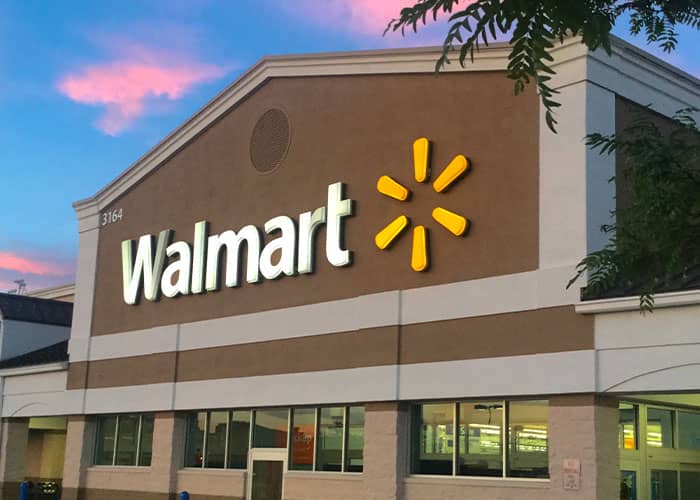
WalMart in Germany.
Went there in the late 90s. Didn’t do any market research and just thought “What we sell in the US will be a success here too”, which not just lead to them selling products that Germans weren’t familiar with, in capacities that no German would ever buy, but also stuff like bedsheets that didn’t fit on German beds.
Even worse: They apparently didn’t know how well regulated workers rights are in Germany compared to the US, so when they did things like forcing the employees to start the workdays with cult like chants, forbid co-workers to have any kind of romantic relationship AND encouraged the staff to snitch on them if they would see someone hold hands or kissing, they got sued and after a few years just though it’s easier and cheaper to get the [hell] out of Germany, instead of adjusting to the culture.
#2
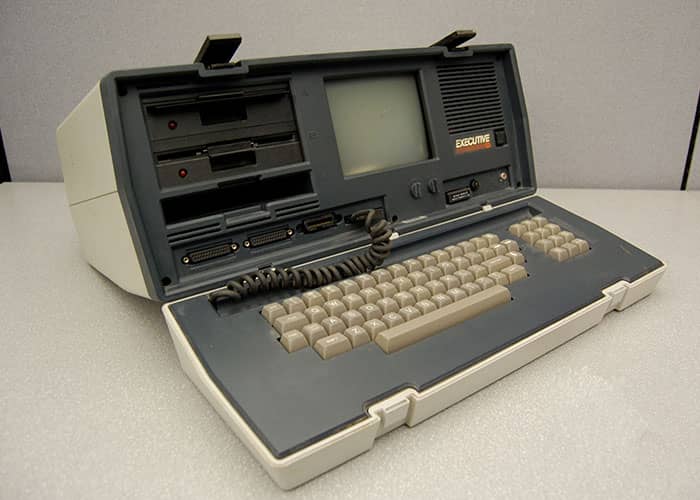
Osbourne Computers were selling portable computers and let it slip that the next version was going to be even better. So a lot of potential buyers just decided to wait until the next version was available. Trouble is, without the sales of Version One, they didn’t have the funds to bring Version Two to market and they went out of business.
They call that The Osbourne Effect.
#3

Taco bell in Mexico. All stores closed within 6 months of each other…reason? While latinos enjoy it in the U.S., street vending reigns supreme in Mexico in terms of quality and price.
#4

A brand new poutine restaurant opened near me at the start of the pandemic (unfortunate timing). They put out a social media campaign offering a discount if you went in without a mask. Immediate boycott and fines. I think they were closed within two weeks.
#5

Small businesses too. Farmers voting for tariffs. Or any business voting for tariffs. I know a few that went under. Bon voyage.
#6
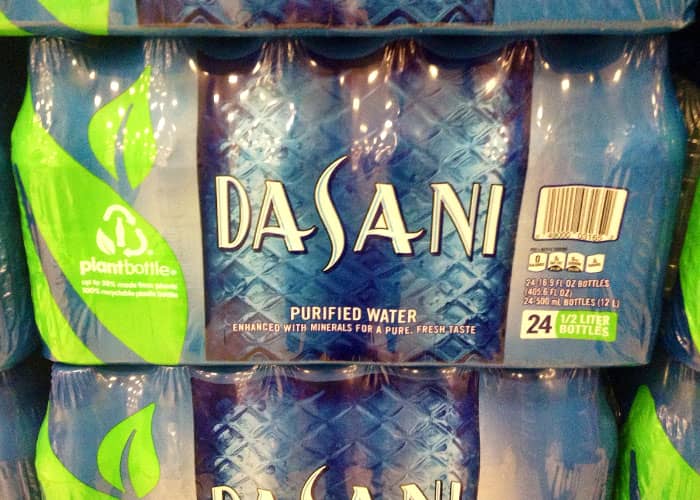
Dasani, the Coke owned water brand tried launching in the U.K. in the early 2000s. Dasani is filtered municipal water launched into a market where natural spring water brands were very well established. Presumably Dasani just hoped that the fact it was filtered wouldn’t be noticed.
Pretty much as it was launched the newspapers exposed the fact that Dasani used water from a London suburb. It was seen as such a joke that a very popular TV sitcom ran an episode where a dodgy trader tried to sell London tap water as premium mineral water. The brand was [gone from] the U.K.
#7

There was this guy who owned a casino in Atlantic City NJ. It was doing well, so he decided, why not open a second casino in Atlantic City and make twice as much money? The new casino got half the business by pilfering business from the old casino. His overhead costs doubled with 2 casinos and his income plummeted. Both went out of business.
#8

Ratner’s Jewelers chain in the UK. Had a major market share of high street business countrywide and the owner Ratner made comments at a CEO conference saying how [bad] his products were and the group almost went bust losing £500 million.
#9
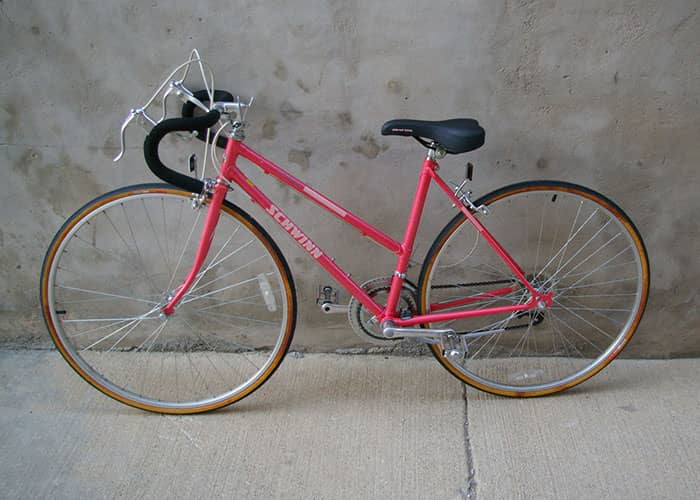
Schwinn Bikes. Outsourced to contract manufacturer in China/ Taiwan. Didn’t have a noncompete agreement. The contract manufacturer started making their own bikes.
#10

Motorola [ended] itself by letting Robert Weisshappel continue to run the cellular division long after it was plain that digital was the future. Instead, he said in the mid-90s “Forty-three million analog customers can’t be wrong” and the board turned a deaf ear to his colleagues that were begging for a little bit of money to develop the next gen of phones. Nokia came in and dominated the market and Motorola faded away.
#11
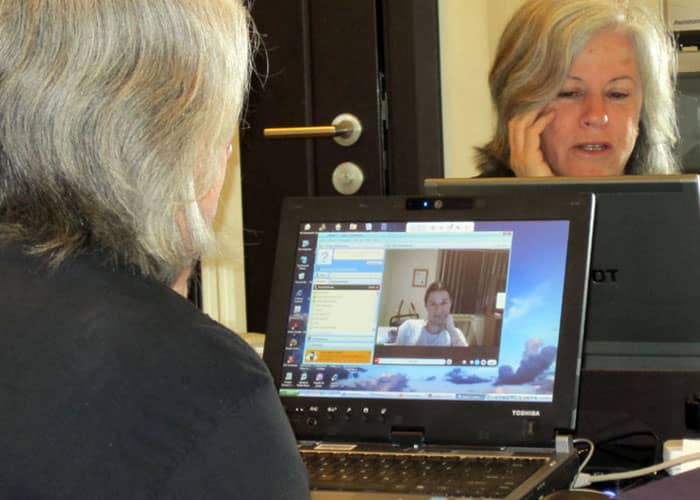
I still, to this day, have no idea how Skype didn’t absolutely CRUSH it during the pandemic. People knew what Skype was and many even had accounts already. It was tailor-made for the pandemic…and then…it just failed. So over complicated compared to Zoom. And the rest is history.
#12

There was an appetite-suppressing chocolate in the late 70s/early 80s called AYDS.
You can guess what happened next.
ditchdiggergirl:
The mistake was in deciding not to rebrand or alter their name. It was under discussion, IIRC and they decided it wasn’t necessary.
#13
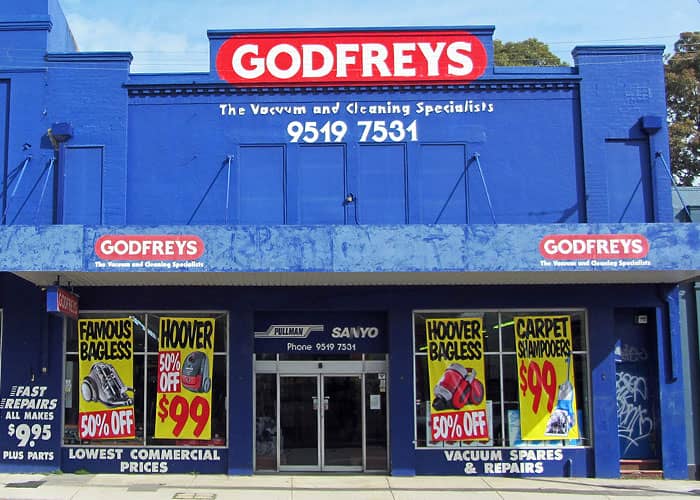
In Australia there was a chain of stores called Godfreys which only sold vacuum cleaners and associated accessories. At their peak they were 60 stores across the country…just selling vacuums.
They were offered to be the sole distributor of Dyson products but passed.
Went bust a few years later after a very slow and painful retailing [demise].
#14

Target Canada: they bought the retail space of Zellers, a well known Canadian company that just went bankrupt after a slow [demise] defined by depressing half empty stores. Then they didn’t properly plan the supply chain so the new Target stores were also half empty because products weren’t arriving on time. Add to that that both Zellers and Target use the same red and white colour schemes and it wasn’t really clear how Target was actually different from Zellers (which no one had been shopping at) – Target left Canada very quickly after taking massive losses.
I believe that this is now well-known a case study of how not to enter a new market.
#15

Wizards of the Coast.
The CEO decided he didn’t need people who knew Dungeons and Dragons to write good work and that we are all beholden to their product since it was the original. The moron has tanked the company. He wanted to get money from 3rd party sellers so he wrote it into the gaming license that anything they wrote would be owned by WOTC. That pretty quickly removed any goodwill from the entire gaming community.
#16
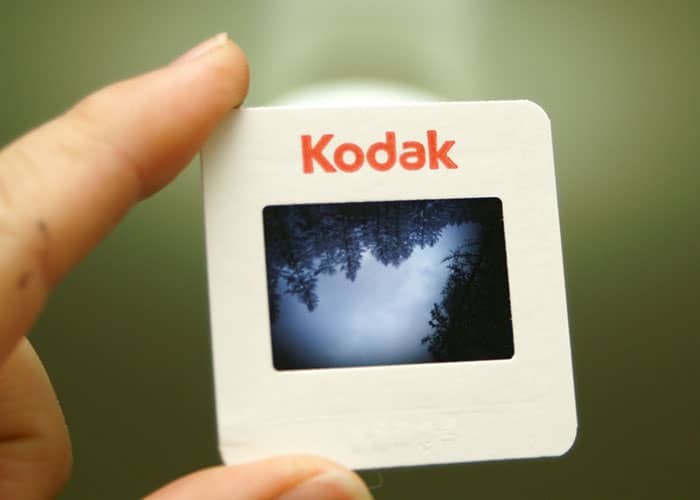
I worked with a guy who used to work at Kodak Corporate in Rochester, NY. He said that in the early 2000s, a company meeting they discussed the rise of digital photography. Kodak knew it was a threat to the film business, but “we figure we have 20 years to transition”. Ten years later, Kodak was bankrupt.
#17
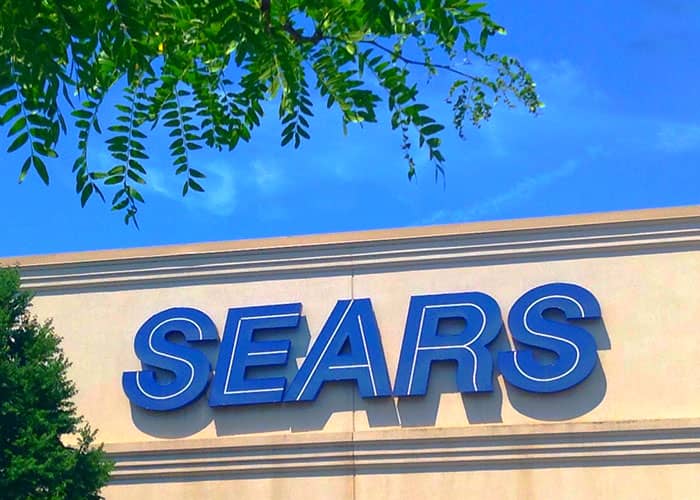
Sears had the stores, the distribution network, the buying power, the mailing list, and the cash to have become an incredibly powerful hybrid retailer. Same is true when WalMart came along. Had they just adjusted their model and thrown a [lot] of resources at it, they could have crushed both like a bug.
But, dinosaur that they were, they just stared at the WalMart and Amazon comets and did nothing until they were flattened.
Sinz_Doe:
Sears had everything they needed to be what Amazon is, but were lazy.
#18
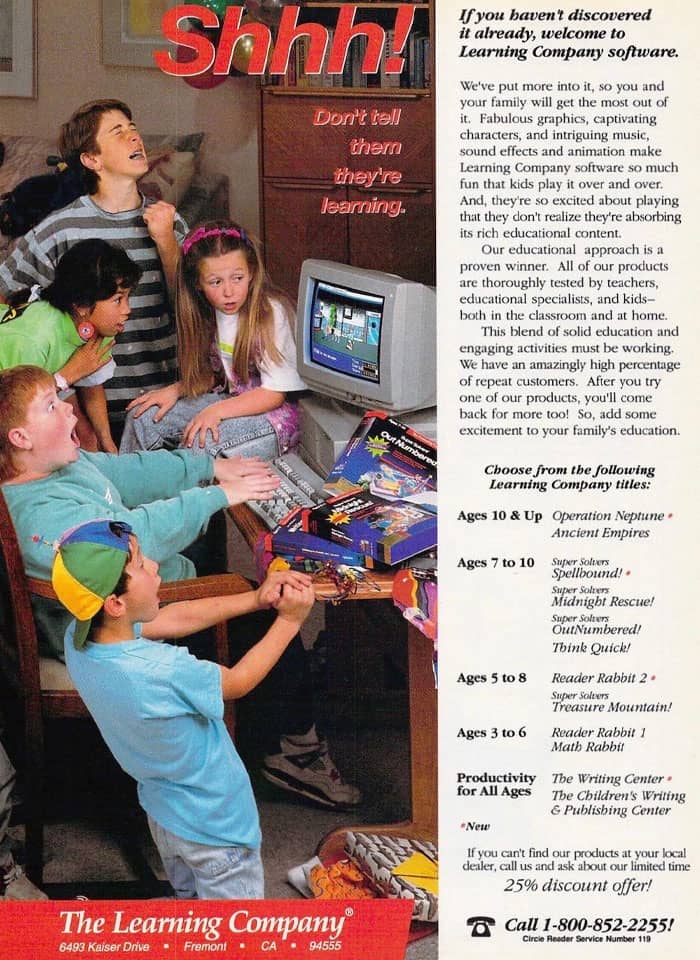
In the late 90’s there was a company called The Learning Company. One year they had a brilliant idea to sell their boxes of software at a discount for $10 while offering a $10 rebate.
They didn’t put a date limit on the rebate.
They didn’t restrict it to a single household.
They didn’t put any safeguards on the number of rebates that could be collected accounting-wise or in legal terms.
The typical claim rate for rebates of that type was something like 5-10% of all purchases would claim a rebate. It ended up being >85%.
Not only did the company sell more units in that single year than all previous years together but they earned so little money that they drained the company’s cash reserves and went into debt in under a year.
Then the bad effects became apparent… the market was so saturated with educational software that no one needed or wanted it.
Schools had already bought every copy needed and claimed the rebate so zero dollars revenue.
Home purchases were curiously skewed and they realized that word had gotten out. Home buyers were buying dozens to hundreds of copies and claiming the rebates. Again zero revenue. Then those same buyers were turning around and donating their software copies for a charitable write off. All the while, TLC made no money.
The fallout was that TLC went from a world leader in the industry to being sold to Mattel corporation then for pennies on the dollar to a private equity firm. Mattel was crippled by this for years and the entire debacle was been referred in business schools as possibly the worst business deal in the late 90’s.
I saw this occur firsthand.
#19
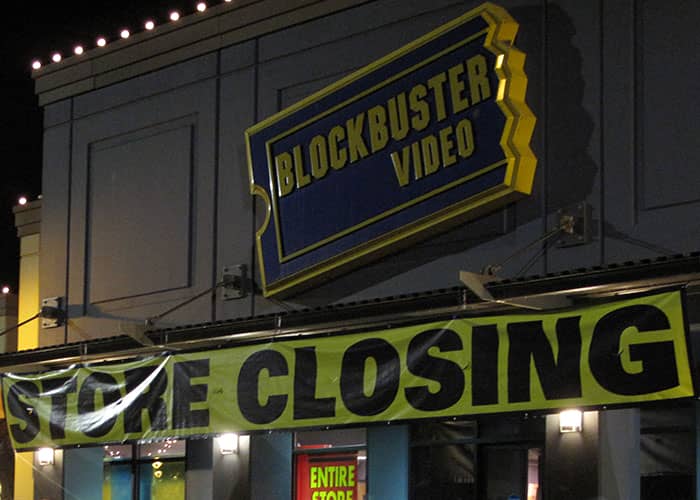
Blockbuster refusing to buy Netflix for $50 million. “Streaming will never catch on” and “laughed them out of the room” Netflix currently valued at $1200/share and company is worth 512 Billion.
#20
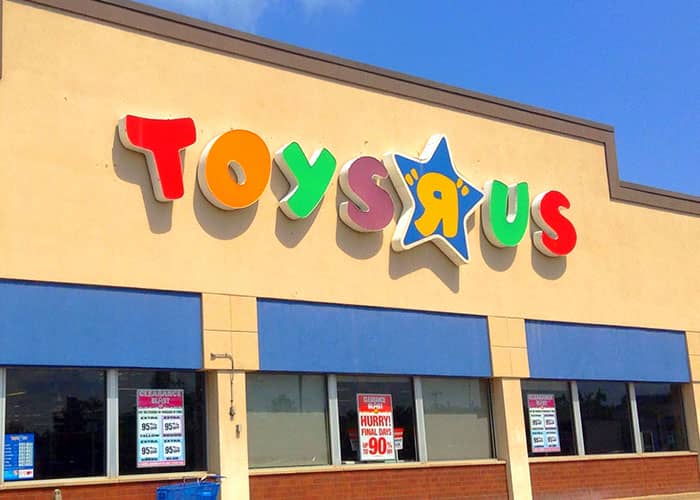
Toys R Us thought that e-commerce was just a fad that would pass.
They got so many orders on their website that they couldn’t get them all out in time.
Then they PAID amazon $50 million a year to sell AND a percentage of their sales to use their marketplace, and be their only seller of toys. So when you went on the toys r us site, it would redirect you to their amazon shop.
Amazon literally learned their whole business and turned their back on Toys r Us and started selling the same stuff without them. Toys R us won the lawsuit and made their $50m back but at that point, customers stopped caring about toys r us and started buying toys on amazon instead.
#21
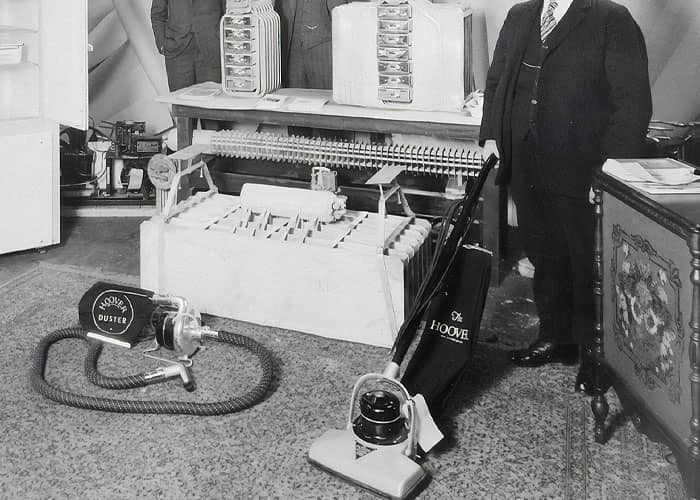
The British division of Hoover has to be one of the top Darwin Awards. They offered two free round trip tickets to the US (value of over 600 pounds), to customers who purchased 100 pounds in Hoover products.
Von_Baron:
It was cheaper to buy a hoover, use the plane tickets and just give away hoover. It had a long term effect on the brand because you could pick up the hoovers for next to nothing in second hand and charity shops. Which meant that for years after the promotion ended their sales were down because everyone already had one.
#22

Just For Feet and the Super Bowl ad.
Basically, it was an ad where white guys in a jeep are chasing a barefoot black man through the brush. They shoot him with a tranquilser and put a pair of their shoes in his feet.
EDIT: Found it.
#23

Steve Ballmer, Microsoft CEO, initially laughed off the iPhone and especially at the thought that people would pay >$600 for a phone. A few years later Windows Phone came out (Microsoft’s first touch interface), but it was too late and they lost the mobile market.
#24

The Jaguar rebrand hasn’t gone very well.
#25

Homebase/Bunnings in the UK.
Homebase was a long-established DIY store in the UK that over the years had started to focus more or homeware and soft furnishings, which became their USP, and less on DIY tools and hardware, but they were struggling. Along came Bunnings, a successful DIY retail company from Australia, and bought-up Homebase for £340m. Unfortunately they didn’t do their homework and assumed that the Australian business model would work just as well in the UK, so they immediately fired all of Homebase’s senior and middle management, dropped all the homeware lines and filled the new store with expensive BBQs and other outdoor furniture and gear suited to long, hot Australian summers, but not short, wet mild UK ones.
Within 6 months the new stores were losing millions, and after just 2 years they all closed with Bunnings having to write-off over £500m in what’s now described as ‘the most disastrous retail acquisition in the UK ever”.
#26
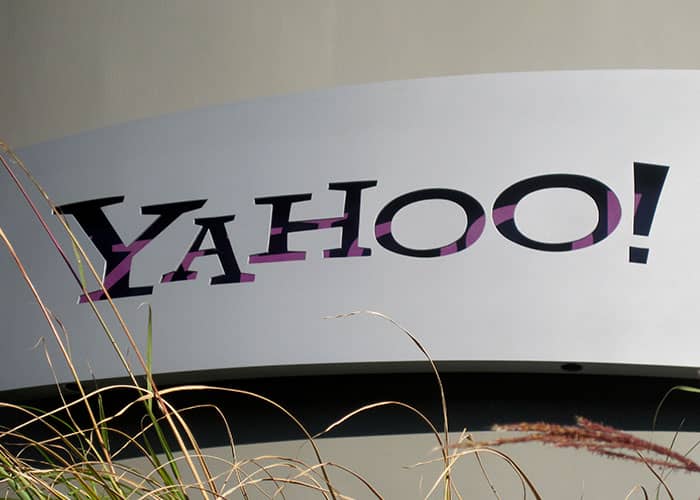
Yahoo could have bought Google for $5 billion in 2002, but they would only offer $3 billion.
That alone didn’t [end] Yahoo, but it sure didn’t help.
#27
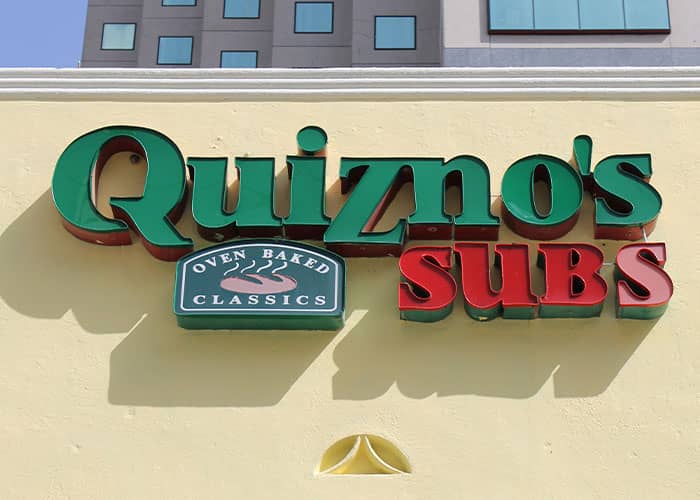
Quiznos. Forced their own franchisees to buy overpriced products and put themselves out of business.
#28

Every business that sold themselves to private equity.
#29
I doubt that guy is selling many submarines now…
#30
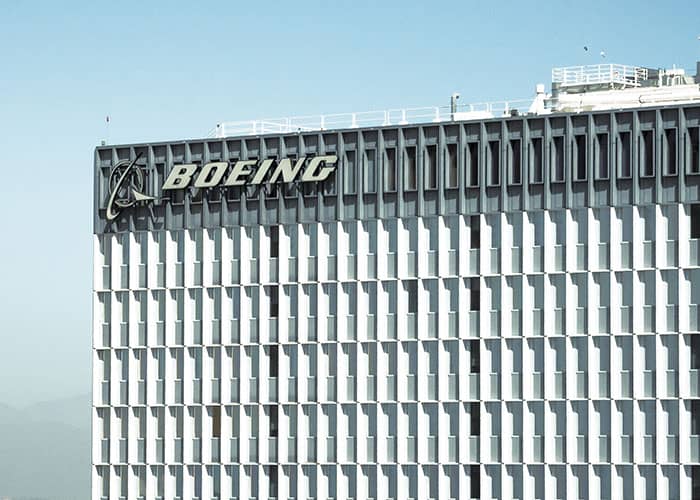
I feel like this one is in progress: Boeing moving its management away from its factory.
Gwtheyrn:
Yeah, that was the arrogance of the McDonnell-Douglas people. They said that the peons shouldn’t have access to those who control the money.
They might be correcting course. The new CEO works out of Seattle and makes it a point to regularly be around and visit the production floor and engineering hall.
#31
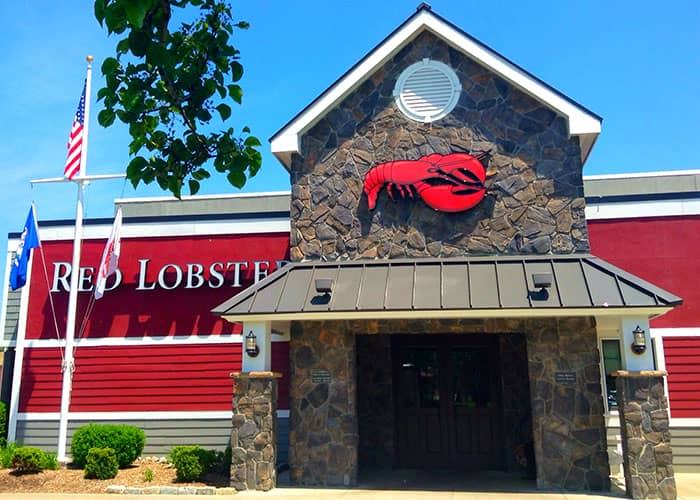
In 2014 Red Lobster sold off most, if not all, of the buildings it owned for a quick way to make that sales quarter look amazing. As part of the sale, they signed a leaseback deal, effectively adding a premium rent expense to 500-something locations.
Pandemic happens, customers stay home, commercial rent costs go up, some C-suite guy rams through a marketing stunt that backfired expensively, and buh-bye.
#32
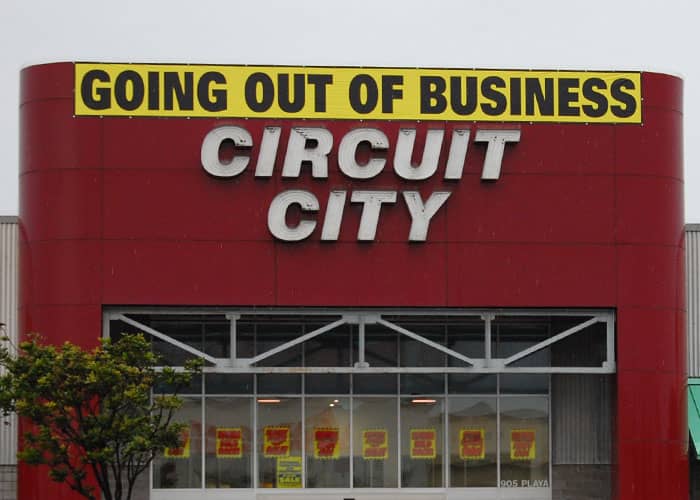
Circuit City backing DivX, the one-time use dvd “rental ” program. From memory, they sank something like 500 million dollars into the development, only to have users rebel and boycott Circuit City.
#33
Maglite – LED technology came along and they didn’t want to invest in it. Their market share plummeted.
#34
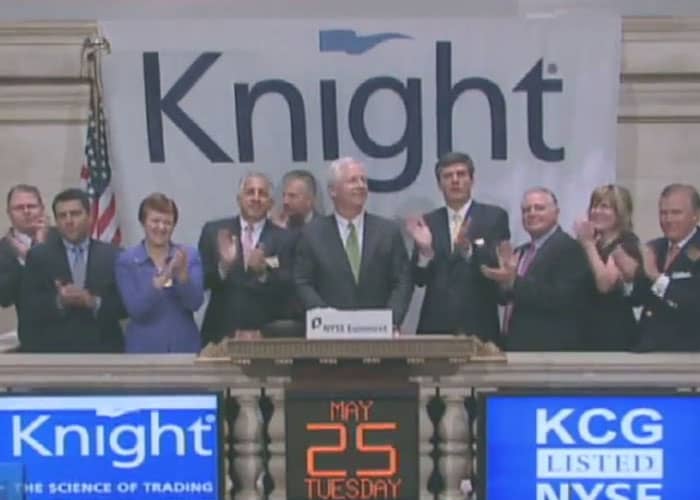
Knight Capital. Their high-frequency trading algorithm went berserk and lost $440M in 45 minutes, bankrupting the company.
#35
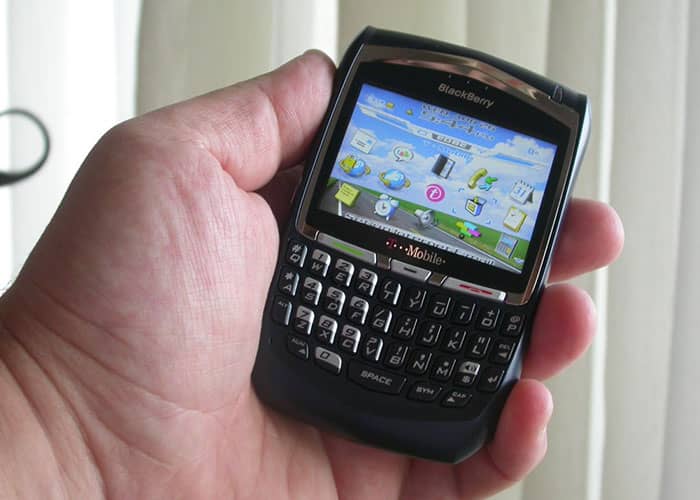
Blackberry (RIM) every time. Abandon the market for two years to invent some [awful] QT based phone while the Dalvik version was created in 12 weeks.
#36
Radio shack. Could have been a main player in personal computers, and cellphones.
#37
These haven’t [ended] the business, but they certainly did shoot themselves in the foot:
Target: company really popular with suburban liberal women decides to try to pander to the Reich and gets rid of their DEI initiatives. They experience a decent boycott and almost no one from the Right was going to shop there anyway since they’re 10-20% more expensive than Walmart.
Cracker Barrel: favorite of country and right wing people because it looks like an old timey redneck hang out. Decides to redo its image by restyling itself from the rust encrusted implements to a Chipotle-esque interior AND they got rid of the cracker. Pissed off the Right and left the left baffled.
Pro tip: if your largest market behaves a certain way, that needs to be taken into account.
#38
AOL Time-Warner. The (then) largest online provider acquired a large print, movie and music corporation.
Some will say this was the beginning of the dot com bubble bursting, so it was inevitable that it would fail. But it’s also the same year that Apple launched the iTunes store and they had to license their music.
ironcladtrash:
I could write a novel about the internet provider side of this too. AOL and cable side of Time Warner did not get along. AOL had a massive backbone and could have still been a major player in that market if they weren’t so arrogant and hard to work with. When my company was bought by Time Warner we built a backbone for them as they did not want to use AOL and they didn’t have the expertise needed.
#39
The digg.com redesign is what pushed myself and a bunch of other users to start using Reddit basically overnight.
#40
Looking at you Tumblr.
#41
In the UK we had a store called Woolworths. During the 70’s and 80’s it was a high street Giant and everyone and I mean everyone shopped there.
As we moved into the 90’s Woolworths main business was selling Music CD’s as well as Toys, childrens items and general small household appliances but there sales and share price were taking a beating due to the increased competition from various other High Street Stores and Out of town Chains.
Now Woolworths were in a very unique position, not only did they outright own most of their stores, but they also had a massive inventory of buildings located in many High Streets up and down the country which other Businesses rented from them.
So they had a choice, take a financal hit, borrowing money which many banks were willing to lend due to their portfolio of buildings and spend the next couple of years modernising their stores and update their stock inventory or sell of the majority of their property portfolio, renting those buildings back meaning they had a massive ton of capital and they can claim they are making more money than they actually were.
Of course they did the latter.
Most of the money made from the sales went to share holders which left very little to modernise their stores and update their inventory.
Over the next few years they closed many stores, modernised the few remaining but it wasn’t enough.
The huge financial burden of having to pay all that rent meant it took far too long to complete the modernisation of their stores and it ultimately [ended] them.
#42
TSR (the company that first made Dungeons and Dragons) sunk themselves by making too many settings, finding the settings weren’t profitable, and then laying off staff.
After Gary was forced out, TSR decided to make and support a bunch of different settings, things like Greyhawk, Forgotten Realms, Birthright, Spelljammer, etc. Each one of these got their own branding, and developed their own followings. The problem is that these settings were expensive to develop and split D&D’s audience. A Forgotten Realms DM didn’t need adventures from Mystara, he needed stuff for Forgotten Realms.
So the company split their audience into a lot of different chunks. These chunks wouldn’t buy stuff from other chunks, so none of the projects ever made much in the way of profit. Management then never told employees what was happening, and would fire them for material not meeting expectations. This included artists and designers like Zeb Cook and Tom Moldvay, Larry Ellison, Brom, and Tracy Hickman. These were some brilliant designers and authors who had followings of their own who got fired and took some of their fans with them.
This then put even more pressure on underperforming setting and adventure material to perform which formed a virtuous cycle, that trapped TSR in a loop of debt it couldn’t escape from.
#43
I don’t know if Radio Shack got away from radio or radio got away from Radio shack but that’s a good example of not being fit for the rapidly changing electronics environment.
#44
Borders farming its online book sales to Amazon. 🤦🏻♀️.
#45
Speaking of awards specifically, there was (is?) an award called the Malcolm Baldrige Award presented to a company for quality and organizational excellence. The problem is, the application process was so intense that it occupied most of managements’ attention for a year or so, and many companies failed after receiving the award.
#46
Gadu Gadu, a Polish chatting app, existing even before Messenger was there.
At some point in late 2000s they had around 7m users in Poland. Almost every middle to university student had it, chatting with friends or family (desktop version). They then made mobile version working on really bad internet on pre-smartphone devices expanding their rich.
However for some reason they were late with roll out smartphone version of the app and making other language versions of the app. In 3 years (2009-2012) Messenger replaced it near completely.
#47
Sega launching the Saturn. Schlitz beer cutting corners to make more beer resulting in awful quality.
#48
Washington Mutual Bank – WAMU
I worked there from 2002-2008. I got tired of the retail BS and found a new job right in the beginning of the Chase acquisition. A search says it’s the biggest bank failure in US history.
High risk lending in a bad economy. Housing crisis left a ton of mortgages upside down. They couldn’t sell those mortgages and weren’t big enough to be bailed out. I just looked it up and only 14% of their business was mortgages, and that was more than enough to tank ’em. They also had too many branches, and too many were in bad areas. Not profitable when you have 6-8 full time employees in each brach at all times and nobody in the lobby.
#49
The USFA Zip 22. There was a company called the US FIre Arms Manufacturing Company that was mostly known for making high quality, faithful reproductions of the Colt Single Action Army (the classic Clint Eastwood/Old West six shooter). In fact, their factory was actually in a part of the historic Colt factory, so safe to say they were pretty highly regarded.
However, the owner was a pretty eccentric guy named Douglas Donnelly, and he got the idea to design an esoteric, inexpensive gun called the Zip 22, and pivot the company to sell that instead of the revolvers they had built their name off of. He thought it would be somewhat revolutionary and end up being a huge success, but unfortunately, the final product proved to be one of the most unreliable guns ever, and the design was arguably pretty unsafe, so unsurprisingly (to everyone else) it was a huge failure.
Ok, no big deal, tried something different, it didn’t work, just go back to making revolvers and you’re not in any worse position than when you started, right? Well, while the gun itself was meant to be inexpensive, it was injection molded, and the molds for making injection molded parts are known for being incredibly expensive. You might see where this is going, but they had shortsightedly sold the tooling for making revolvers in order to fund the tool up for the Zip 22, with the intention of buying new revolver tooling with all the profit they’d be raking in from the Zip 22. When the Zip 22 failed to bring in much of anything, that was the end of the road for USFA.
#50
IBM just wanted to sell computers so they let Microsoft keep the copyright to the operating code.
#51
Research in Motion assumed no one would give up a BlackBerry for an iPhone due to the lack of keyboard.
#52
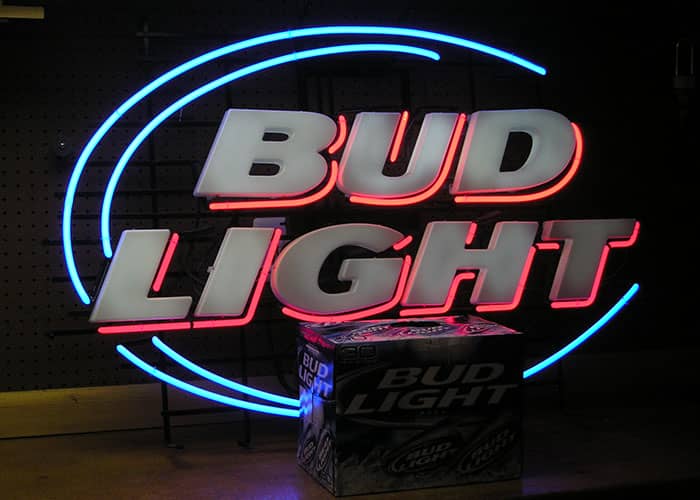
Bud Light was once the top-selling beer in the United States, fueled largely by an aggressive advertising budget that built strong brand recognition and appealed directly to its core demographic. In 2023, company leadership attempted an abrupt cultural repositioning of the product, which ended up alienating much of its loyal customer base. Sales plummeted and remain down by about 40%. Some analysts believe the brand’s reputation may be permanently damaged, as many consumers have shifted their preferences to substitute beers like Miller Lite.
#53
Arthur Andersen doing Enron’s fake accounting.
#54
Sears buying K-Mart.
Both companies were struggling. Both were failing to adapt to the times. But combined…they both hastened their downfall.
#55
Nokia. I’m trying to find an article I read about this but can’t find it.
Every year Nokia released 68 phones. They were basically slight rehashes of the previous year’s models. They would create demand by not releasing every model in every market. The next year markets would get the successor of the popular phone that they hadn’t got the previous year.
They dabbled in touch phones. They had 2 operating systems one of which was SymbianOS. It was dreadful and very under-developed.
Around 2006 the engineers presented to the board a concept for a fully featured touch screen phone. (I’m Not sure about which operating system it was to use). The proposal was to stop the 68 phones and just put everything into this new phone.
The board were incredulous. They were making a fortune for very little R&D. They owned a huge swathe of the market. People wanted keyboards. They declined and continued with the 68 phone model.
The iPhone was released in 2007 and Android not long after in 2008. Sales halved in under 2 years. Nokia tried to turn the ship around. It continued to develop it’s crippled Symbian OS into S60. Eventually in 2010 it developed a new operating system Meego to put on new touch screen phones. It was way too late by then.
teaming up with Microsoft and putting Android on it’s phones didn’t help. Some of it’s products were great – but there was no cut through. People were buying funky phones from HTC et al.
Ironically, HTC died by using the same model. Having a huge inventory and releasing mildly worked over versions year after year. One year a leaked version of the next flagship phone circulated. It was amazing. Fanboys went wild. It was released and it….was a mildly worked over version of the previous model. The CEO said the leaked version was too expensive to make.
Then Samsung came along, curved screens, great cameras……
#56
Lots of US nominations, but here’s one for a Dutch company: DigiNotar, the certificate authority that was trusted by the Dutch government. Until it turned out in 2011 that they couldn’t be trusted, and had been hacked by an Iranian hacker. After it was found that false certificates for google.com and many other sites were created on their systems, they were out of business in a few weeks.
#57
Shlitz.
Once one of the largest breweries in the country, they took some cost cutting measures in the late 60s to speed up production that ended up making the beer turn gloopy and hazy, and tanked the reputation. A series of poor choices in branding and union strikes did nothing compared to that high speed quality failure.
#58
CompUSA trying to become Best Buy.
#59
Miniscribe had management ship bricks instead of hard drives and it went about as well as you could expect.
#60

The whole Astronomer CEO/HR lady affair is a pretty big recent one.
#61
OceanGate has entered the chat. Stockton Rush am has exited the chat.
#62
The British conglomerate GEC. They were very much like GE in America in that they had interests and defense, power generation, transportation systems, consumer goods and telecoms.
In the late 90s they decided to focus on telecoms and nothing else. So they sold off all their assets with the exception of their telecoms assets and renamed the company Marconi because they owned that brand name.
Around the same time British Telecom had announced its 21st century network project which would basically completely rebuild the entire national telecoms infrastructure with IP based systems. Marconi, as it was now called, assumed they would get a load of the contracts being awarded seeing as up to that point they were the dominant supplier to BT with their System X technology. In fact it was seen as a complete given by many industry analysts.
They didn’t get a single contract, which was unfortunate because the company had bet its entire future on getting a couple of those multi-billion-pound contracts.
So basically the company collapsed and Ericsson swooped in to buy all the good assets and the rest were split off into a new company called telent which existed mainly to maintain existing System X exchanges. GEC went from being a highly diversified company that could absorb one division failing, to essentially betting everything on red and failing.
This plan was approved by all the board members and the majority of the shareholders, people who should have known better. They literally approved a plan where if they failed to get the BT contracts they wouldn’t have enough money to survive and would collapse.
There’s a BBC drama called Friends and Crocodiles which tells a slightly fictionalized account of the self inflicted demise of GEC.
#63
Palm: One of the very first smartphone/handheld computer makers and they just mismanaged everything into the ground. The way we interact with phones today owes a lot to Palm products and design though.
#64
QuarkXPress had the near monopoly of desktop publishing in the ’90 and got totally annihilated by Adobe. This was due to never-addressed issues, not supporting Mac OS X, and as far as I remember, relocating the software development to India.
#65
RCA and the very extended development time of CED where they tried to reinvent the wheel with manufacturing the discs when they discovered that a regular record plant would do…. it pretty much destroyed the company in the end…..
#66
Intel focusing on desktop computers and not selling mobile chips to Apple.
#67
Netscape deciding to scrap their browser and rebuild from the ground up. Took them 3 years, they went from version 4 to version 6 and Internet Explorer destroyed them.
Borland did something similar trying to make dBase for Windows, and then again trying to rewrite Quattro Pro.
MS almost did it with Word but they scrapped the project and kept working on the old code base.
#68
Seagrams – in 1995 Edgar Bronfman Jr (I worked there in the late 90s & heard he was an aspiring actor himself) decided to sell Seagram’s DuPont shares & buy controlling interest in MCA (including Universal pictures & music). This started the beginning of the end. By 2000, the entertainment division was sold to Vivendi & the beverage division was sold off to Diageo & Pernod Ricard.
#69
Vshojo went from one of the biggest Vtuber agencies in the world to dust in less then 48 hours.
#70
When Chevy refused to rebrand Nova cars into Mexico. Translated, Nova = No Go. And the cars were [bad], so the name fit.